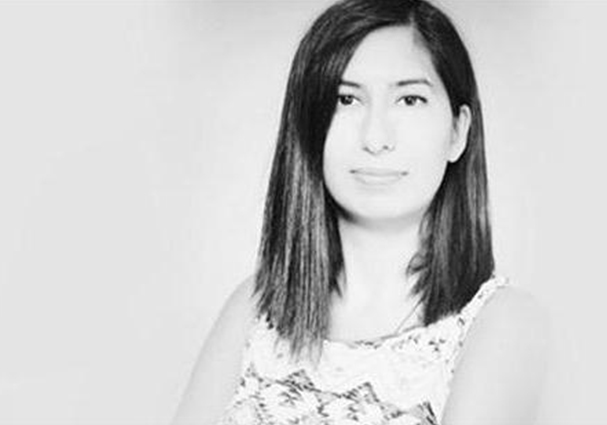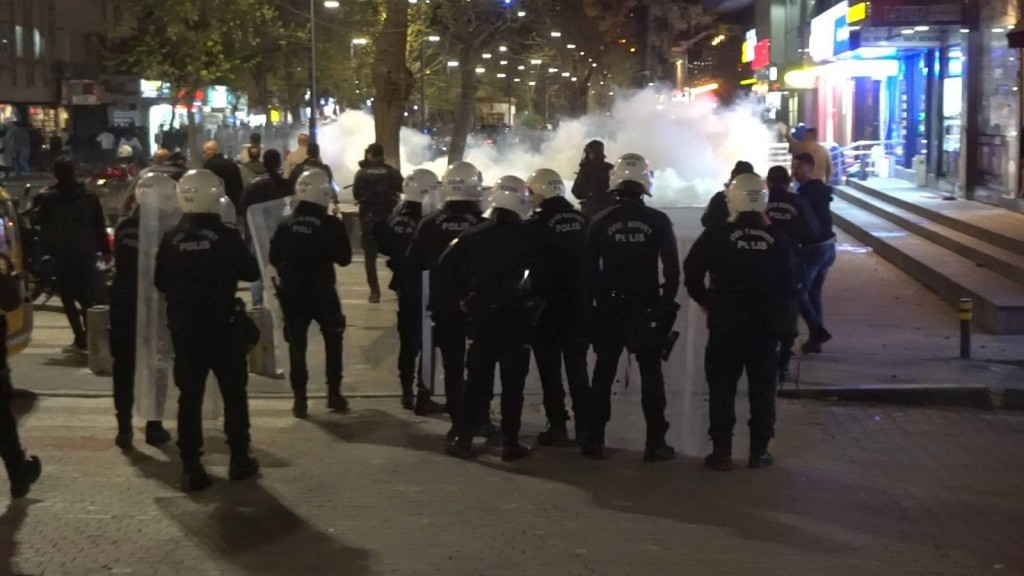Daily Cumhuriyet reporter Canan Coşkun reported claims that a lottery to select homebuyers for a housing project in Istanbul’s Başakşehir neighbourhood was rigged to favour members a group of judges and prosecutors with ties to the ruling Justice and Development Party (AKP).
Coşkun stands accused of “tarnishing the reputations of the judges and prosecutors by spelling out their names” in her Feb. 19 story “Controversial residence sales in judiciary”. The story also highlighted the roles of some of those named in her story in other controversial cases*, such as the border search of intelligence agency-owned trucks reportedly carrying weapons bound for Syria and the termination of a graft probe that implicated high-ranking AKP members, among others.
Criminal insult cases in Turkey are not uncommon. As a recent IPI Special Report noted:
“Turkey’s Criminal Code criminalises ‘insult’, i.e., undermining another person’s honour, dignity or respectability, or attacking that person’s honour by attributing a concrete act or a fact to the person or by means of an insult. Insult normally carries a fine of three months to two years imprisonment. However, if the person insulted is a public official, the minimum punishment is one year in prison; and if the person is the president, the punishment can increase to up to four years in prison and even more if the insult was delivered via media.”
A BBC report in April noted that at least 236 people had been investigated for “insulting the head of state”, Turkish President Recep Tayyip Erdoğan, between August 2014 and March 2015, of whom 105 people were indicted. However, the case against Coşkun represents a dramatic new development, not only because the sentence sought is so much harsher than others in the past, but because it shows leading members of the judiciary to be as averse to criticism as members of the government.
IPI spoke with Coşkun about the charges filed against her and the problems that still need to be addressed to improve Turkey’s press freedom record.
IPI: Why did you report on this story? Why do you believe it is important?
Coşkun: In my investigation, I discovered that several judges and prosecutors who played a key role in Turkey’s groundbreaking legal cases had discounts up to 100,000 Turkish Liras [Ed.approximately €33,500] to buy luxury residences in Istanbul built by a public real estate firm. This discount amounts to half of the price of an average house in the suburbs of Istanbul. I saw in the list that there were judges and prosecutors who paid 1,000,000 Liras to buy an apartment, which made me think whether it is legal and ethical for a judiciary member to do it. These judges and prosecutors are the members of the Unity in Justice Platform (YBP) and the same question was asked by other members on the group’s Facebook page. “A judge can’t pay this money [with his salary],” one comment said, which was the only piece of opinion in my article. Even this single comment was enough to show why the story was newsworthy.
IPI: Did you anticipate any backlash from the Turkish government for publishing it?
Coşkun: Actually, there was no immediate backlash right after the publication of the story. Only Istanbul Chief Prosecutor Hadi Salihoğlu released a press statement, stressing that he bought a house for 491,000 Liras, which confirmed my story. The listed price of the apartment was 557,000 Liras and the chief prosecutor did not elaborate on the 66,000 Liras in difference. Until the indictment was prepared, no other reaction came up. None of the judges and prosecutors denied the claims in the story. The article was almost forgotten when the indictment was released. As the prosecutor asked the court to jail me for 23 years and four months, it naturally triggered an outcry.
IPI: Why do you think you were targeted?
Coşkun: I do not see myself as targeted, but I see myself as the subject of revenge. The prosecutor added the names of judges as plaintiffs to increase the jail term, although they had not sued me. Others, who sued me, could have wanted just one thing: revenge. For instance, Deputy Chief Prosecutor Orhan Kapıcı claimed in his criminal complaint that my story was “a news story [that] amounted to insult.” He was the prosecutor who closed the corruption investigation in which then-Prime Minister Recep Tayyip Erdoğan’s son was also implicated. For Kapıcı, reminding the readers of this fact in my story was an insult. Revenge could be the motivation of some other plaintiffs, too, because I had published stories related their rulings in the past, which might have annoyed them then.
IPI: Can you tell us more about current status of the case?
Coşkun: The investigation into my article was launched by the Bureau of Press Crimes at Istanbul Republican Chief Prosecutor’s Office in February and it was completed last week. The Second Criminal Court of First Instance has accepted the indictment. The first hearing will be held on Nov. 12 at 10:10 a.m.
IPI: You have been charged and a trial has been set. What comes next for you?
Coşkun: Frankly, I am still in shock due to the indictment. The first thing I am going to do is to write a defence explaining that my story was true, based on documents and confirmed by related figures after its publication.
IPI: What are the implications of the charges you face in terms of press freedom in Turkey?
Coşkun: Due to the charges laid on me, Turkish journalists may soon find themselves in a situation that they are not allowed to implicate any public servant with their critical reporting. In my story, there was not even a single criticism related to the duties of the judiciary members. It was only based on the fact that “certain judges and prosecutors bought luxury houses with special discounts.” Is it in the scope of public duty for a judiciary member to buy discounted luxury houses? Is it why I am accused of insulting them? Let me give you an example: Assume that I see one of those judges or prosecutors while he or she was dropping litter on the pavement. Will they charge me with insult if I report it in my newspaper? Such restrictions would deprive the public from the right to criticize them. It would be yet another blow to the freedom of speech in Turkey.
IPI: What does this case mean regarding the relationship between the Turkish government and the media?
Coşkun: The case against me is not initiated by the government. It shows me that “civil servants” are intolerant of criticism. There are precedents in the European Court of Human Rights, such as the Tuşalp v. Turkey ruling, which shows that “politicians and high level state officials should be more tolerant for provocative criticism,” condemning Ankara to pay compensation. Of course, these rulings did not stop the figures in the administration from suing any journalist who mentioned their names in their reports.
IPI: How important is the role of the media to uncover instances of alleged government corruption?
Coşkun: There is nothing that can be categorised as corruption in this case. It is about the sale of discounted luxury residences and my story did not even imply that the sale could be illegal. However, I would like to answer this question by reminding the legal case that targeted me over my story on Erdoğan’s son, in which I was ultimately acquitted. It was based on Bilal Erdoğan’s phone calls wiretapped by the prosecutors of the Dec. 25 graft investigation. In the phone calls, he was speaking about a historical mansion in Istanbul’s Fatih district and its allocation for the use of TÜRGEV, the educational foundation in which he works as a board member. I don’t believe that I revealed corruption by reporting on this phone conversation. While reading the transcripts, I was a witness not only as a journalist named Canan, but also as a member of public. This is what is done by all media outlets except the AKP media. The AKP media, on the other hand, just cares whether a story would be liked by Erdoğan and the party. This is their only criterion. They do not publish stories that would serve public interest because they could offend Erdoğan. And this is why I believe that my job is very valuable and I think I am doing it in the right place.
*This sentence was revised on June 26, 2015 for clarification.



